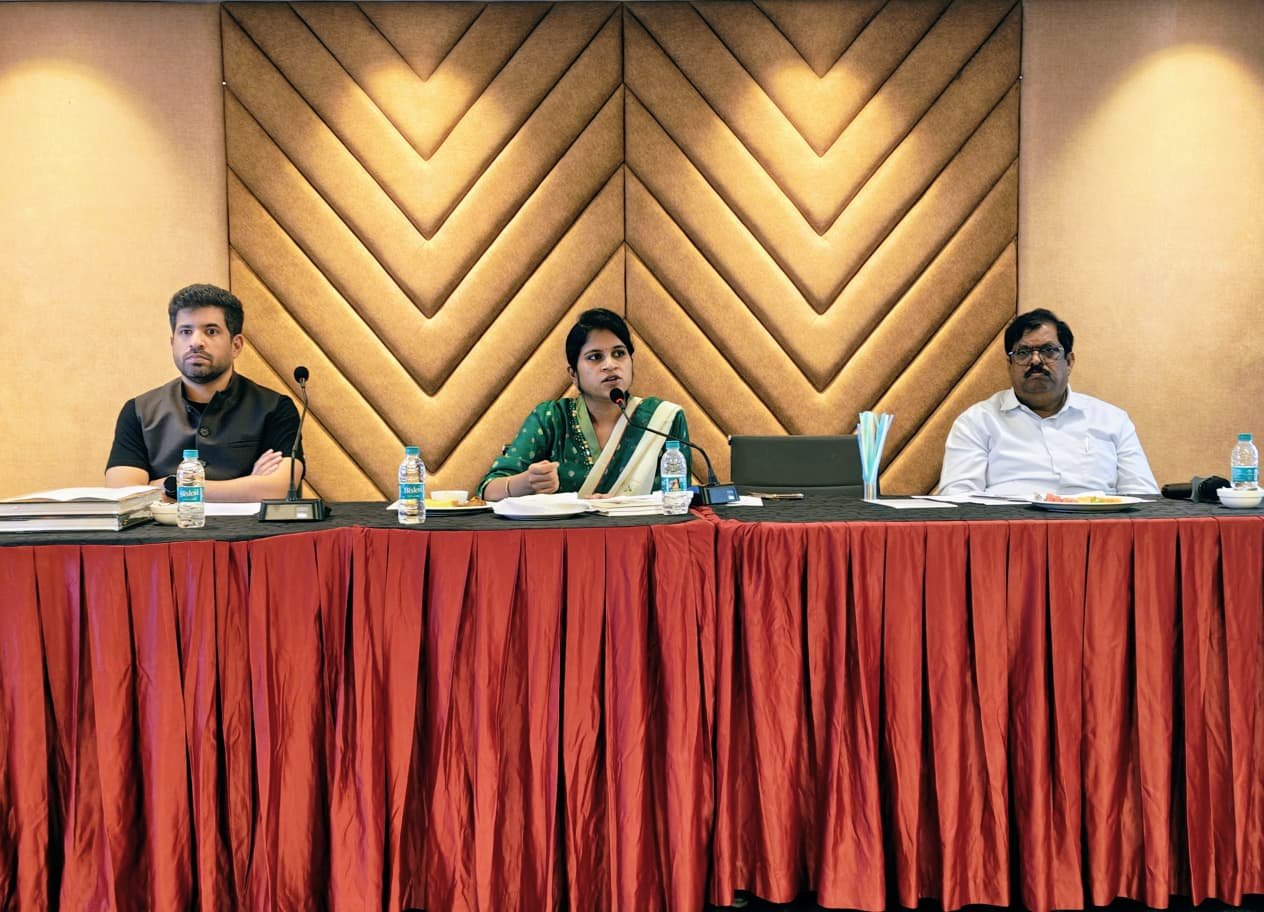
Artificial Intelligence (AI) – these two words have taken over every existing field. Business, healthcare, finance, warfare, education, entertainment, environmental conversation – you name it, AI has in some way affected it. The development of this technology has happened at an alarmingly fast pace and left most of us in a moral conundrum.
Rashmika Mandanna is among the many celebrities who have fallen victim to this advancing technology, with her deepfake video going viral on social media, sparking an important conversation about AI and its potential for misuse. Sadly, this isn’t the first instance of deepfake, and it’s unlikely to be the last.
With each passing day, AI is engendering creative imagination into a riveting reality. From self-driving cars to virtual personal assistants, AI is constantly reshaping our world but at what cost?
It is a technological marvel that holds both promise and peril in its virtual hands.
Artificial Intelligence: The double-edged sword.
Every day there’s a new enhancement in the field of AI. But what is AI? Professor Omprakash Mandge, Course Coordinator for Data Science and Machine Learning at MET Institute of Software Development and Research & Institute of Computer Science, talks about this emerging technology by saying, “The main objective of artificial intelligence is to mimic the behaviour of the human brain to complete certain tasks faster. AI-driven algorithms are revolutionizing sectors such as healthcare, finance, transportation, and travel to name a few.”
A viral post on social media was about a girl who lost her copywriting job because OpenAI’s ChatGPT is capable of performing the same activity at a faster and superior pace. A sophisticated application has become her formidable foe. And that is the case for quite a few people who have lost their jobs since AI has come into the picture.
But AI is far from perfect, Professor Mandge agrees by saying, “Most of the AI tools lack transparency, are not neutral, do not prioritize privacy and can be biased. And let’s not forget the ethical challenges it brings along.” The idea of AI replacing human decision-making in critical areas is constantly a matter of global debate.
This double-edged sword, offers tremendous opportunities for innovation and progress, while simultaneously leading a bright future straight into the abyss.
The catastrophic power of AI in warfare.
As nations all over the globe fight for power, the emergence of AI in the battleground seems inevitable. We are constantly in a daunting competition and nations are progressing rapidly in weaponizing AI. In July 2022, during the first ever ‘AI in Defence’ symposium & exhibition, the Defence Minister of India, Shri Rajnath Singh launched 75 newly developed AI products, some of which are Autonomous Weapon Systems, robotic technologies and surveillance systems. Shri Rajnath Singh said that, “Timely infusion of technologies like AI & Big Data in the defence sector is of utmost importance, so that we are not left behind the technological curve and are able to take maximum advantage of technology for our services.”
The unveiling of Russia’s kamikaze drone, KUB-BLA, made by the infamous Russian weapons manufacturer Kalashnikov, is another development that has put AI on the map for battles. The Israel Defence Forces (IDF) are already using AI-powdered weapons to analyze data and make decisions for organized air raids and strikes. While the military insists that these are constantly monitored by humans, it won’t be long before they are fully autonomous and won’t require human oversight to play the dire game of life and death.
By using such AI-based lethal weapons systems, a staggering question arises, who should be held accountable for autonomous assassinations?
Dr. Rajesh Kumar K V, Assistant Professor, AI Research Centre at Woxsen University, Hyderabad, expresses his thoughts on this significant issue, “AI could strengthen military capabilities, reduce mortality, and improve decision-making. However, the ethical and legal issues are concerning.” Especially when the AI makes an error and instead of the intended target, a few innocent lives are lost – how do you charge an AI system with murder? He further adds, “AI must be utilised cautiously to ensure human control and responsibility, as prosecuting AI with murder is impractical and unethical.”
If we fail to ensure accountability and transparency, we are looking at catastrophic consequences that are far beyond our comprehension and our control.
Dr. Rajesh Kumar accurately notes, “Responsible AI use in battle requires balance.”
The rise of AI Deepfake

The rise of AI deepfakes comes with the challenge of unparalleled deception and manipulation. Rijul Gupta, PhD candidate in Machine Learning at the University of Sydney talks about the catalyst for this innovation, “The ease of improving upon and experimenting with existing content, without having to go through the arduous process of re-recording from scratch, has been a major driver of progress in AI-based cloning technology.”
As we saw in the case of Rashmika Mandanna, the actress’s face was morphed over Zara Patel’s face, a British-Indian influencer. AI was used to manipulate existing media to create content that appeared authentic to the public. While the Delhi Police is trying to crack this case and find the people behind the deepfake, the actress took it to X to share her concerns and fears, ‘Something like this is honestly, extremely scary not only for me, but also for each one of us who today is vulnerable to so much harm because of how technology is being misused.’
Several other celebrities have also become victims of such deepfake manipulation that blurs the line between reality and illusion.
During the 2019 Indian elections, deepfake videos president of India’s ruling Bharatiya Janata Party (BJP), Manoj Tiwari, went viral on social media platforms. The original video was manipulated using AI to show him speaking in the Hindi dialect of Haryanvi, thus, manipulating public opinion, creating false narratives, and influencing elections.
Misusing this technology to impersonate public figures and spread misinformation is getting easier. Prof Omprakash Mandge talks about how one can efficiently scam people with this fascinating technology. “Deepfakes are used to send personalized messages from the CEO of a company to their customers, potentially deceiving them. They can be used to send false information and can lead to many unethical actions.” By the time someone uncovers the truth, millions can be stolen.
Imagine watching a deepfake video of world leaders making fictious accusations and declaring war on nations. This pandemonium will escalate tensions between nations and lead to diplomatic fallouts, and military conflicts, threatening the stability of the world we live in and it can last for generations. ‘NEVER trust an Audio clip without an attributable source.’ Minister of Information Technology and Digital Services of Tamil Nadu, Thiaga Rajan tweeted.
“I believe that malicious deepfake usage has disproportionately taken over the media.” Admits Rijul Gupta. “Nevertheless, proponents of AI-based content generation technology under the Content Authenticity Initiative banner are actively addressing malicious usage by digitally fingerprinting AI-generated and modified content.”
Once a video is out in the open, going viral on social media, it’s there to stay and influence. Even if it is later debunked as a deepfake video – there will still be a wide public who believe that this misinformation is the truth. It’s hard to control this kind of exposure and it results in a loss of trust in any visual evidence.
As Elon Musk took to X, ‘Nobody likes being regulated, but everything (cars, planes, food, drugs, etc) that’s a danger to the public is regulated. AI should be too.’
Deepfake is a digital masquerade that has the potential to annihilate the very fabric of our perceived reality and the consequences are far graver than we could ever imagine.
At the crossroads of ethics.
As long as technology continues to progress, AI will continue to be at the forefront of innovation. We have to accept that AI is here to stay and its influence on our lives will only grow stronger.
Dr. Rajesh Kumar talks about the transformation AI brings to our daily life. “It may solve complex difficulties and enhance global connectivity. But when exploited, this technology may cause employment loss, privacy issues, and unethical uses like deepfakes.”
AI’s insatiable appetite for data raises an ethical conundrum, how much of our privacy are we willing to sacrifice for convenience and innovation? Governments and corporations argue that it is necessary for security, public health, and personalization, while privacy advocates raise concerns about the erosion of individual liberties. As Prof Omprakash Mandge wisely observes, “The challenge is to use AI in an unbiased way while keeping human values intact. If implemented responsibly, AI can change the society in a better way.”
Balancing innovation with moral responsibility is a formidable challenge, one we must all face. AI is here to stay but we decide how.








Leave a Reply